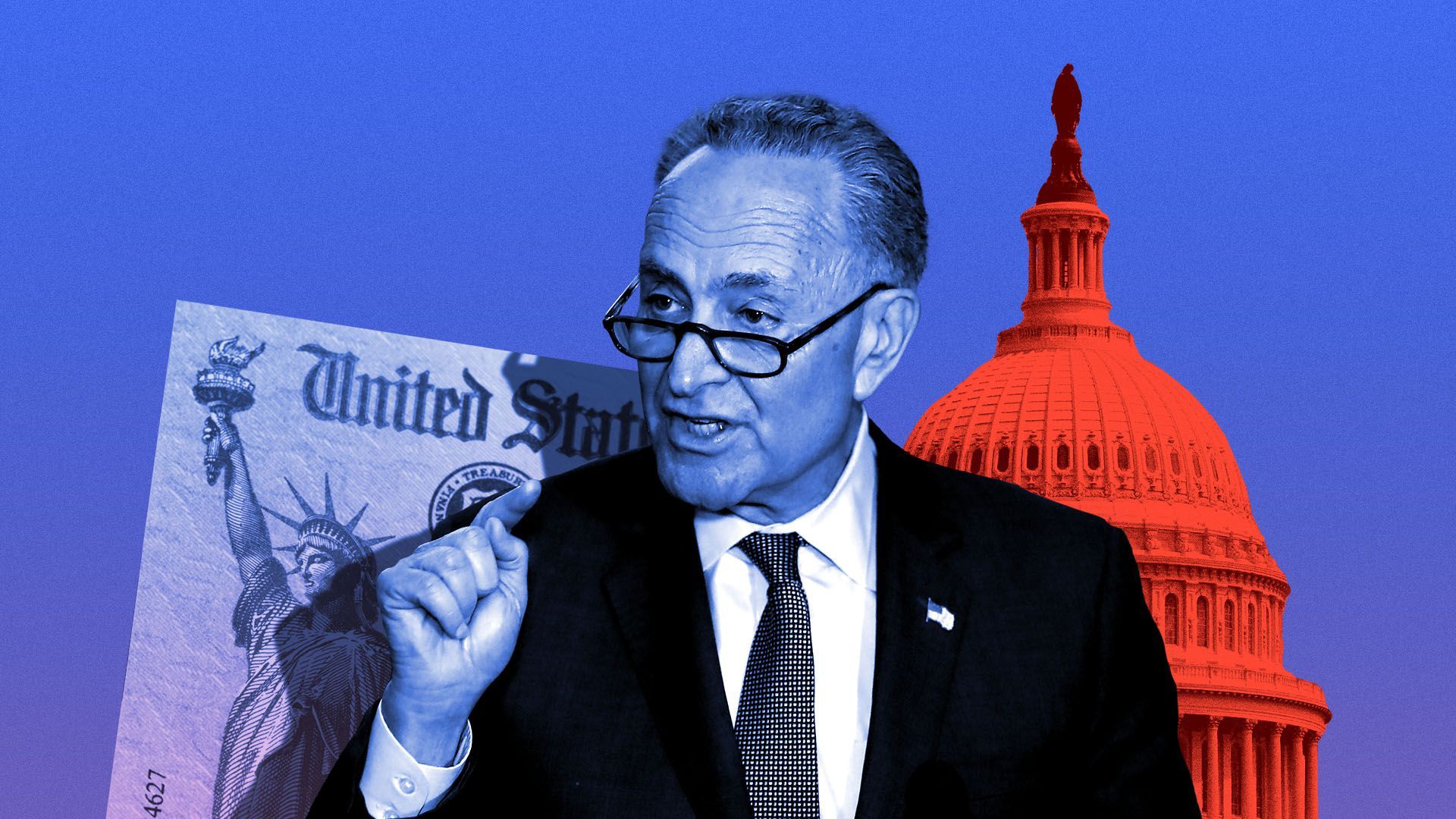How Democrats could thread the needle on climate change policy
Add Axios as your preferred source to
see more of our stories on Google.

Photo illustration: Sarah Grillo/Axios. Photo: Mark Wilson/Getty Images
A new report offers a window onto something on a lot of people's minds in the energy world: what kind of policies Democrats could try to move through the Senate with 51 votes.
Driving the news: The groups Evergreen Action and Data for Progress yesterday released a proposal for ways to move a "clean energy standard" through the Senate using the budget reconciliation process.
That's the procedural tool that enables some types of spending- and revenue-related policies to move on special legislation that's immune from filibusters, but it's a tricky thing.
Why it matters: President Biden, during his campaign, set a target of reaching 100% carbon-free U.S. electricity by 2035.
Electricity is the second-largest source of U.S. carbon emissions after transportation, but the policy and legislative pathways to meet that ambitious goal are a little foggy.
How it works: The new analysis says there are lots of options to spur power sector transformation that are consistent with reconciliation. Here are a few...
- A new federal system of "zero-emissions electricity credits."
- "Utilities would earn ZECs by continuously increasing the amount of carbon-free electricity they deliver to customers, or else purchase the credits from the federal program," the authors note in a Vox summary.
- A twist on the idea would "involve the federal government regularly buying a quantity of ZECs from power companies, through auctions," they note.
- Another could be "conditional block grants based on their utilities’ commitments to meet certain clean electricity criteria," the report notes.
- Yet another would be a federal "carbon intensity standard" that gives power producers incentives to "remain below a declining emissions-intensity threshold, by charging them an increasing penalty for failing to do so."
Reality check: Senate Majority Leader Chuck Schumer has signaled that he's interested in moving some climate-related provisions through reconciliation.
- But even then, the political pathway and appetite for aggressive power-sector policies are really unclear right now.
- Sen. Joe Manchin, the chairman of the Senate's energy committee, has expressed deep reservations about moving things with a bare majority (zoom to the 26-minute mark of his interview yesterday with the Bipartisan Policy Center to get that flavor).
- And this Washington Examiner piece explores his skepticism about zero-carbon power mandates.
The big picture: An RBC Capital Markets report yesterday lays out some broad areas that could be ripe for reconciliation.
- The report notes overall there would be a "strong hand in determining the mandatory spending allocations that can fit with clean energy advancement and climate change mitigation."
- One avenue is a "clean energy financing mechanism or 'bank' to consistently fund clean technologies or infrastructure."
- "Extended or improved tax rebates for renewable energy, battery storage, carbon capture technologies, etc. are also on the table."
